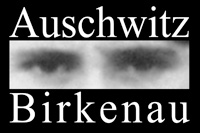




IG Farben
A German chemical conglomerate resulting from the 1925 merger of such leading firms as Bayer, Agfa, and BASF. In the 1930s, owing to technological advances and state subsidies, it almost monopolized the production of many goods vital to the Third Reich war economy. The most important of these were liquid fuel and synthetic rubber, which could not be imported to Germany after the sea lanes were cut at the start of the war. The conglomerate was one of the first companies to employ concentration camp prisoners on a mass scale—above all from Auschwitz (Auschwitz III)— and to demand that the SS maintain their capacity for labor, mostly through the replacement of the sick (selection) and weak with healthy, strong new arrivals from the transports arriving in the camp. After the war some members of IG Farben management were tried at the American Military Tribunal in Nuremberg and sentenced to up to eight years in prison, but all the convicted men were released at the beginning of the 1950s.
